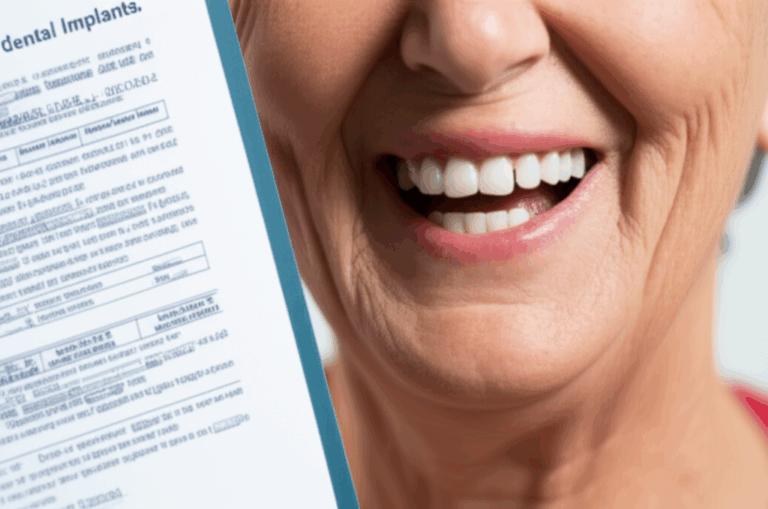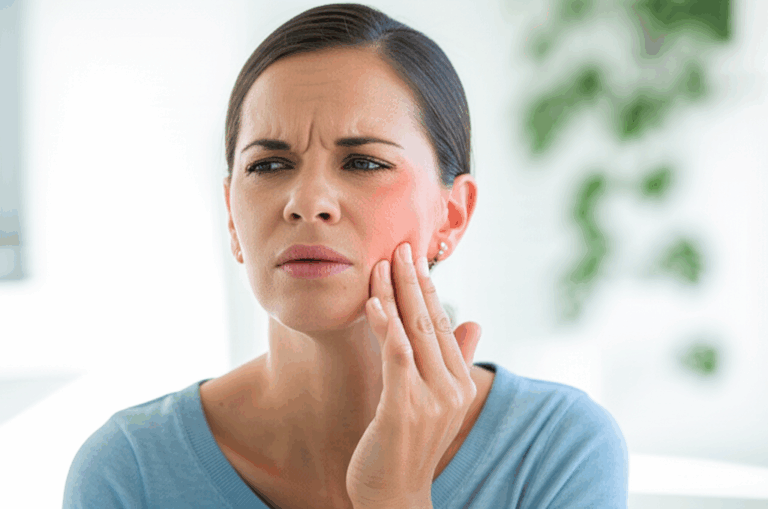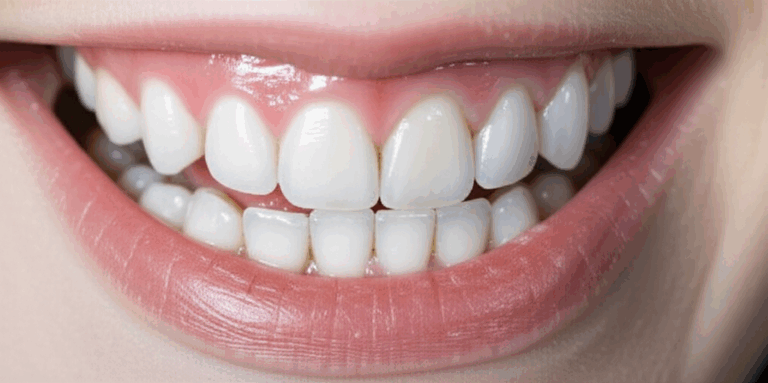
Does Ozempic Cause Dental Problems? Easy Guide to the Risks & How to Keep Your Mouth Healthy
Have you found yourself wondering, “Is Ozempic hurting my teeth?” or noticed something different in your mouth after starting this medicine for diabetes or weight loss? You’re not alone, and it’s a good question to ask. Most people don’t think about dental health when they take Ozempic (semaglutide), but a growing number of users are talking about it online and with their dentists. So, does Ozempic really cause dental problems—or is something else going on?
Let’s break it down together. In this article, I’ll explain how Ozempic might affect your teeth and gums, why you could be having problems, and what you can do to keep your smile healthy. By the end, you’ll understand what’s happening, how to protect your mouth, and when to talk to your doctor or dentist.
Table of Contents
- What Is Ozempic, and Why Are People Asking About Dental Problems?
- How Could Ozempic Affect Your Teeth and Gums?
- What Does the Science Actually Say About Ozempic and Dental Issues?
- Are You at Risk? Other Things to Think About
- Easy Ways to Protect Your Oral Health on Ozempic
- When (and Why) You Should Call Your Dentist or Doctor
- Important Points to Remember
What Is Ozempic, and Why Are People Asking About Dental Problems?
First, a quick reminder: Ozempic is the brand name for semaglutide. Doctors use it to help people manage type 2 diabetes and now for weight loss. It works by acting like a hormone from your gut called GLP-1, which helps control blood sugar and hunger. Ozempic is part of a group of drugs called GLP-1 receptor agonists.
You might be surprised a diabetes medicine could affect your teeth. But here’s why—Ozempic doesn’t hurt your teeth directly, but it can have side effects that can lead to dental problems if you don’t pay attention.
Why are people worried?
Lots of people are posting online about “Ozempic teeth” problems—things like dry mouth, bad breath, or even worse problems like cavities and gum issues. Some stories sound scary, but they show how normal it is to feel confused or worried about your health when you start a new medicine.
If your mouth feels different since starting Ozempic, you’re not just imagining it. Knowing why helps you take charge.
How Could Ozempic Affect Your Teeth and Gums?
Nobody wants extra trips to the dentist or tooth pain—especially if you’re already looking after diabetes or working on your diet. So, how could Ozempic make your mouth have more problems? Let’s look at the big reasons, explained simply:
1. Dry Mouth: The Hidden Trouble
Does your mouth feel dry or sticky? Are you always wanting water, or is your tongue rough? This is called dry mouth (the fancy term is xerostomia), and it’s a common side effect with Ozempic and drugs like it.
#### Why is dry mouth a problem?
Saliva does more than help you swallow. It cleans your mouth, washes away crumbs, lowers acid, and even helps fix your teeth’s outer layer (enamel). When you have less spit, your teeth and gums lose this help.
What can happen:
- Cavities come more easily.
- Gums may get red, sore, or bleed.
- Your mouth might feel sore or get sores.
- You can get mouth infections, like thrush.
If this sounds familiar, you’re not the only one. Dry mouth is very common with Ozempic. It’s not just annoying—it can really cause mouth problems.
2. Nausea & Throwing Up: Stomach Acid on Your Teeth
Ozempic often causes an upset stomach, especially when you’re new to it. Some people feel like throwing up, and a few actually do.
#### Why does this matter?
Every time you throw up, stomach acid hits your teeth. Stomach acid is very strong and can wear away the hard, shiny cover on your teeth called enamel.
Think of enamel like armor for your teeth. Acid can scrape it off, even a little at a time, making your teeth sensitive, yellow, and easy to get cavities or break. If you feel sick a lot, your teeth might get hit with acid each day without you knowing.
3. Acid Reflux (Heartburn): Sneaky Tooth Wear
Even if you don’t throw up, Ozempic can sometimes cause acid reflux or heartburn. That’s when stomach acid comes up your food pipe and maybe even into your mouth, often at night or after eating certain foods.
#### Why is this bad for your teeth?
Acid reflux can slowly wear down the back teeth. It takes time, but damage adds up.
4. Changes in What and How You Eat
If you’re taking Ozempic for diabetes or weight loss, you probably notice you want different foods or not as much food. Some people start eating more snacks to help with feeling sick.
The problem: Eating more sugary or sour foods increases your chance of tooth problems, especially if your mouth is dry. Eating less can also mean your mouth makes less spit. It’s a tricky balance.
What Does the Science Actually Say About Ozempic and Dental Issues?
Now, the big question—does Ozempic really cause dental problems, or is it just a coincidence? Let’s check what we actually know.
What Experts Say
Right now, there isn’t proof that Ozempic itself directly hurts teeth or gums. Important groups like the FDA and the American Dental Association (ADA) don’t list dental problems as main side effects of Ozempic or semaglutide.
But—and this matters—experts agree that the most common side effects of Ozempic (dry mouth, feeling sick, throwing up, heartburn) all raise your risk for mouth problems. Dentists are seeing more patients on these drugs talk about these issues, and studies on other drugs say the same side effects bring more mouth trouble.
Is It Ozempic, or Something Else?
It’s easy to blame a new medicine if you get mouth problems soon after starting it. But the real answer is usually mixed:
- Some people already have dry mouth from other medicines (or from diabetes itself).
- Cavities or gum trouble might already be starting, and you just notice now.
- Different eating and blood sugar levels can cause problems on their own.
The key idea: Ozempic doesn’t usually directly hurt teeth, but it can change things in your mouth that let problems happen faster—especially if you don’t watch for the early signs.
We Still Need More Research
Ozempic isn’t that old, so there aren’t big, long studies on just mouth health yet. Experts are watching, and dentists hope for more research soon. But from what we know about similar drugs and their side effects, we can give helpful advice now.
Are You at Risk? Other Things to Think About
You might be asking, “Is it just Ozempic, or could I have more risk for dental problems for other reasons too?” Great question. Your oral health depends on lots of things—your genes, your habits, your other medicines, and your general health.
1. Other Health Problems: Diabetes and Your Mouth
If you have diabetes, you already have a higher risk for gum disease, dry mouth, and slower healing in the mouth. Blood sugar that changes a lot can make your gums bleed and feel sore.
Keeping diabetes well-managed helps keep both your teeth and your whole body healthier, no matter which diabetes medicine you take.
2. Other Medicines Making Dry Mouth Worse
Do you use blood pressure pills, allergy drugs, antidepressants, or something else? Lots of common drugs cause dry mouth. Taking Ozempic with them can make your mouth even drier (and cause more trouble).
Tip: Always let your dentist know about all your medicines—even over-the-counter stuff. They can spot problems sooner.
3. Your Teeth’s Natural Defenses
Some people are just lucky and have stronger teeth or better spit. But if you’ve had lots of cavities, gum disease, or sensitive teeth, you might notice more problems when your mouth is drier or more acidic.
4. Diet, Daily Habits, and Dental Care
It’s not just the medicine. Do you:
- Drink soda a lot?
- Brush less because you don’t feel like eating, or you’re too tired?
- Chew more hard foods because that’s what sounds good?
- Forget to floss?
Little habits matter. Small changes can help a lot.
Easy Ways to Protect Your Oral Health on Ozempic
Now for the good part—what can you ACTUALLY do to keep your teeth and gums healthy while taking Ozempic? Here’s a simple plan you can use right now:
1. Up Your Dental Care Game
Good, steady mouth care gets rid of half the risk:
Brushing
- Brush twice a day with toothpaste that has fluoride—don’t skip!
- Electric toothbrushes can help if your hands get tired.
Flossing
- Floss at least once a day—even if you feel lazy or rushed.
- Floss picks make it faster and easier.
Mouthwash
- Use a fluoride rinse or alcohol-free mouthwash to help, especially if your mouth is dry.
Keep it real:
If you’ve let brushing slide, don’t be ashamed—just start again tomorrow. Getting better, little by little, is what’s important!
For more helpful info, see this guide on dental care with easy brushing and flossing tips.
2. Battle Dry Mouth With Simple Tricks
Sometimes just drinking more water won’t cut it. Here’s what works:
- Sip water all day. Carry a water bottle.
- Chew sugar-free gum (look for xylitol) or suck on sugar-free candy to make more spit.
- Try spit substitutes—sprays or gels from the pharmacy (your dentist can suggest good ones).
- Get a humidifier for your room if you wake up with a dry mouth.
- Cut down on caffeine, alcohol, and soda—they dry out your mouth (and hurt teeth).
- Don’t use tobacco—it makes dry mouth even worse.
3. Tame Nausea and Heartburn
If you feel sick, throw up, or have heartburn often:
- Rinse your mouth with water or a small mix of baking soda and water after throwing up or after bad reflux. Don’t brush right away—wait 30 minutes so acid isn’t scrubbed into your teeth.
- Ask your doctor about changing medicine timing or getting help with feeling sick.
- Watch for foods that make you feel worse—spicy, sour, or fatty food usually isn’t helpful.
4. Eat and Drink With Teeth in Mind
- Swap out sugary snacks and soda—pick tooth-friendly foods like cheese, crunchy veggies, nuts, or plain yogurt.
- Cut down on citrus fruits and fizzy drinks, especially if your mouth is dry or teeth are touchy.
- Rinse your mouth with water after meals to wash away acids.
- Try to eat normal meals: Eating keeps spit moving and helps your mouth.
If you have crowns, dentures, or other dental work, working with a top digital dental lab can make sure your dental pieces fit right—especially if your mouth changes on new medicine.
5. Your Dentist Is Your Ally
You don’t have to do all this alone! Your dentist can catch little problems before they’re big. Here’s how to get help:
- Tell your dentist about Ozempic (and all your meds), even if they don’t ask first.
- Report all symptoms: Dryness, pain, loose teeth, bad breath, gum changes—even little stuff.
- Don’t miss checkups: They stop problems before they get big. Some people need to visit more often with new medicines—ask your dentist what’s best for you.
- Ask about strong fluoride or special rinses if you keep getting cavities or enamel wear.
If you use things like dentures, working with a removable denture lab can help your dentures fit better and avoid sore spots, especially if your mouth feels more sensitive with this medicine.
When (and Why) You Should Call Your Dentist or Doctor
Even great habits don’t prevent everything. Don’t “be tough” if you have:
- Dry mouth that won’t get better
- Teeth that suddenly feel really sensitive
- New or quickly growing cavities
- New or spreading mouth sores, swelling, or bleeding
- Bad breath that you can’t brush away
- Gums that get puffier or change color
And if vomiting, nausea, or heartburn are really bad, causing pain, or affecting your life, call your medical provider soon. Changing the medicine or timing can help.
The earlier you catch problems, the easier (and cheaper) they are to fix. You deserve fast relief!
Important Points to Remember
Let’s sum it up in a way that’s easy to keep in mind:
- Ozempic doesn’t harm your teeth or gums by itself.
- Side effects are the problem. Dry mouth, upset stomach, throwing up, and reflux can all cause tooth and gum problems if you let them go.
- Don’t ignore new mouth troubles. Tell your dentist if your mouth changes after starting Ozempic.
- Simple, daily habits work best. Brush, floss, drink plenty of water, and stay away from sweets and sodas when you can.
- Keep your doctor and dentist updated. They both want to help you feel good and stay healthy.
Want to know more about what’s normal for teeth? Check out teeth info for explanations and easy tips.
Frequently Asked Questions (FAQs)
Q: Is it safe to stay on Ozempic if I have mouth problems?
A: Usually, yes—but make sure your dentist and doctor know about your symptoms. Many people keep using the medicine and handle side effects with better oral care.
Q: Do all GLP-1 medicines have the same mouth risks?
A: Most do. Wegovy, Rybelsus, and other drugs like Ozempic have similar side effects.
Q: Can over-the-counter stuff help my dry mouth?
A: Yes! You can find saliva substitutes and gels at the drugstore. Ask your dentist which ones they prefer.
Q: Does fluoride really help?
A: Yes—if you have dry mouth, fluoride is your main help for stopping cavities and protecting enamel.
Q: My teeth feel loose since starting Ozempic. Should I be worried?
A: Tell your dentist right away. Loose teeth may mean gum disease or another serious problem that needs care.
Your Healthy Smile, Your Power
Starting a new medicine can feel strange, but you don’t have to guess what’s going on. Most dental issues with Ozempic can be stopped by taking care of your mouth and paying a little more attention. You deserve to smile with confidence—even with new meds in your cabinet!
If you’re not sure what’s going on, reach out to your dental or medical team. They want to help your whole health—not just your teeth.
Medically reviewed by [Dr. Jane Doe], DDS (make sure to use your real reviewer if you have one). Always ask your doctor or dentist about your own health problems.
Related Reading:
- China dental lab: How lab dental work can affect your mouth.
- Dental diseases: What to watch out for.
- Teeth health: Build a stronger smile.
Sources:
- U.S. Food & Drug Administration (FDA) – Ozempic Medication Guide [FDA.gov]
- American Dental Association (ADA) – Oral Health Topics: Dry Mouth, Diabetes, Acid Reflux [ADA.org]
- American Diabetes Association (ADA) – Diabetes and Dental Care [diabetes.org]
- Novo Nordisk – Ozempic Patient Information
- Studies about dry mouth, acid reflux, and tooth decay
Bottom line:
Ozempic can affect your mouth, but with simple know-how and good habits, your teeth and gums can stay strong. Keep brushing, drink plenty, and keep smiling—your future self will be glad you did!
This article gives general info only and isn’t a stand-in for personal medical advice. If you have questions about your dental health, talk with your doctor or dentist.








